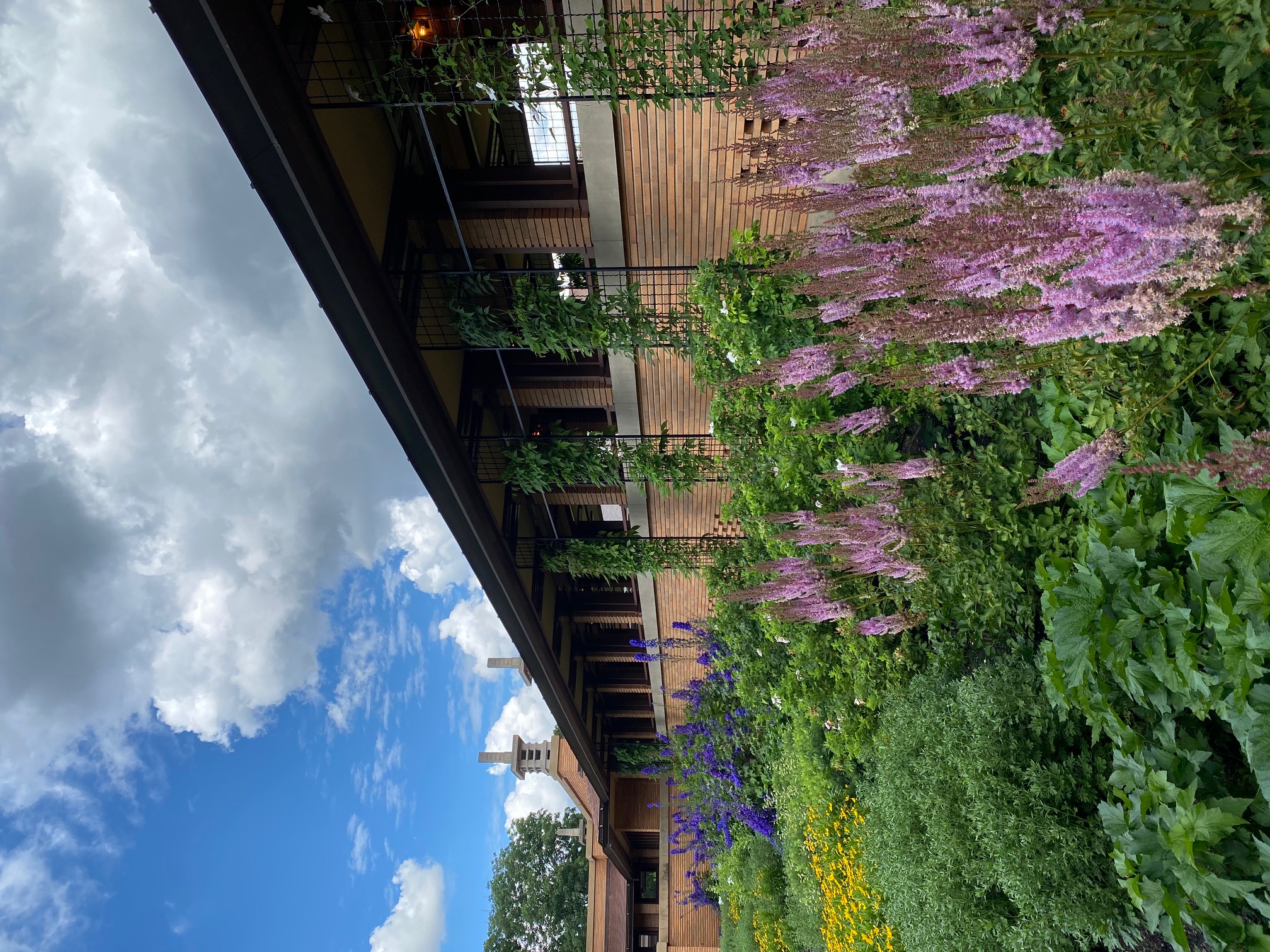The Martin House maintains approximately 25,000 square feet of landscape planting beds. For healthy, aesthetic plants, the soil must serve as a reservoir for water, oxygen, and nutrients. In preparation for the blooming season, a process takes place in the spring that allows us to fully enjoy the growth of the plants.
Soil testing this year has shown a need for an application of sulphur to reduce the soil pH, followed by organic fertilizer and compost/mulch applications designed to improve the soil fertility. Healthy soil leads to healthy plants that would have made Isabelle Martin proud.
Sulphur Application
Elemental sulfur is added to the soil so that soil bacteria can change the sulfur to acid, lowering the soil pH level. It is important to note that this is a biological process (slow) and not a chemical reaction (rapid). The bacteria are active when the soil is moist and warm, therefore the soil temperature needs to be above 55° F. The soil pH level we strive for is below 7.5 pH. An approximate pH can be determined by using a portable pH meter.
Fertilizer Application
Following the sulphur application, the planting beds are fertilized with an organic application. Organic products are ideal for the Martin House landscape because they feed the soil, create a sustaining environment, and provide garden plants with slow-release, consistent nourishment. Having soil alive with microbes and fungi slowly releases nutrients to the plants. The plants access the nutrients in the soil to protect themselves from harmful pathogens and pests.
The organic fertilizers used contain hydrolyzed feather meal, pasteurized poultry manure, cocoa meal, bone meal, alfalfa meal, greensand, humates, sulfate of potash and sulfate of potash magnesia, as well as fresh strains of mycorrhizal bacteria to feed the soil and sustain the plants. When selecting products, look for these ingredients listed on the package as they are slow acting and offer a safe, non-burning application.
Mulching
Mulch is a material that is spread around a plant or over the soil surface as a protective layer. If you think of soil as a ‘cake,’ the mulch is simply the ‘icing.’ It provides a range of benefits for your garden. Mulch is important to your plants’ health because it not only insulates the soil, helping to provide a buffer from heat and cold temperatures, but it also retains water to help keep the roots moist. In addition, mulch keeps weeds out to help prevent root competition and to prevent soil compaction.
The Martin House landscape contains approximately 2” of natural hardwood mulch. Only all natural products that contain no additives, construction debris, or wood pallets are used. Mulch is annually cultivated into the beds before a new layer is applied.









